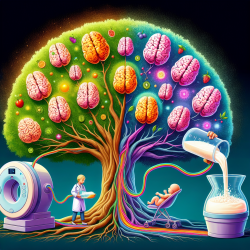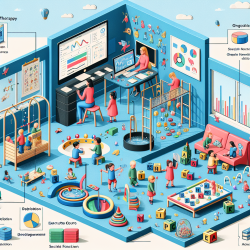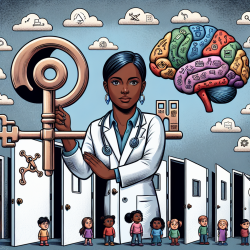The journey of nurturing a child's development begins long before they take their first steps or utter their first words. For preterm infants, who face unique challenges from the outset, the role of nutrition—particularly breast milk—has emerged as a critical factor influencing early brain development. Recent research conducted in China has shed light on the profound impact of breast milk on the developing brains of preterm infants, offering valuable insights for practitioners dedicated to optimizing infant care.
Understanding the Research
A groundbreaking observational study titled "The impact of breast milk feeding on early brain development in preterm infants in China" explored the differences in brain gray matter between breastmilk-fed and formula-fed preterm infants using advanced imaging techniques such as structural and functional magnetic resonance imaging (MRI). The study involved 56 preterm infants, divided into two groups based on their primary source of nutrition—breast milk or formula.
The findings were compelling. Breastmilk-fed infants exhibited greater regional gray matter volume in multiple brain regions, including the bilateral frontal lobe and right temporal lobe. Additionally, these infants showed increased brain activation in the right superior temporal gyrus compared to their formula-fed counterparts. These results suggest that breast milk plays a significant role in enhancing both the structural and functional aspects of early brain development.
Implications for Practitioners
For practitioners working with preterm infants, these findings underscore the importance of advocating for breast milk as a primary source of nutrition whenever possible. Here are some actionable insights:
- Encourage Breastfeeding: Support and educate mothers about the benefits of breastfeeding, particularly for preterm infants. Highlight how breast milk can contribute to better cognitive outcomes and overall brain development.
- Collaborate with Lactation Consultants: Work closely with lactation consultants to provide comprehensive support to mothers facing challenges with breastfeeding. This collaboration can help ensure that mothers receive the guidance they need to successfully breastfeed their preterm infants.
- Promote Research Participation: Encourage participation in ongoing research studies that explore the long-term effects of breast milk on brain development. By contributing to this body of knowledge, practitioners can help refine best practices and improve outcomes for future generations.
- Educate Families: Provide families with information about the nutritional components of breast milk that are essential for brain development, such as docosahexaenoic acid (DHA) and long-chain polyunsaturated fatty acids (LC-PUFAs).
The Path Forward: Encouraging Further Research
The study's findings open new avenues for research into the relationship between nutrition and early brain development. Practitioners can play a pivotal role by advocating for further exploration into this critical area. Consider these strategies:
- Sponsor Research Initiatives: Collaborate with academic institutions and healthcare organizations to sponsor research initiatives focused on understanding the nuances of how breast milk influences brain development.
- Create Awareness Campaigns: Launch awareness campaigns that highlight the importance of early nutrition in shaping cognitive outcomes. These campaigns can engage both healthcare professionals and the public.
- Pursue Interdisciplinary Collaboration: Foster interdisciplinary collaboration among pediatricians, neurologists, nutritionists, and researchers to develop comprehensive strategies that address the multifaceted needs of preterm infants.
A Call to Action
The journey towards optimizing early brain development through nutrition is ongoing. As practitioners dedicated to improving infant health outcomes, it is crucial to remain informed about emerging research and actively contribute to this evolving field. By championing the benefits of breast milk and supporting further research initiatives, we can make a lasting impact on the lives of preterm infants.










